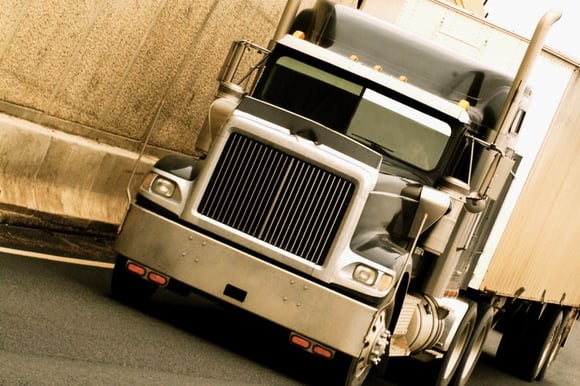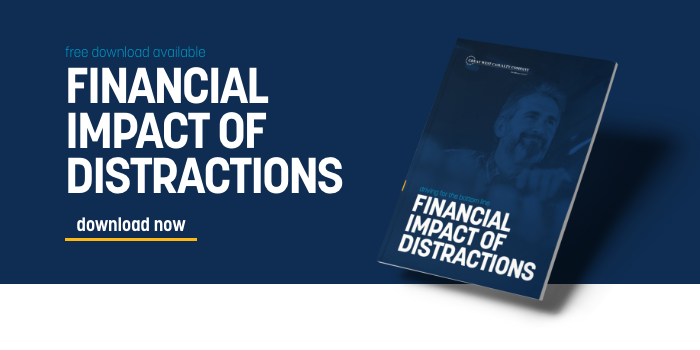How Engineering Controls Help Manage Risk

Managing the risks associated with trucking operations can be a daunting task. From choosing the right insurer to navigating contract pitfalls, there are countless ways a motor carrier can experience losses. To keep the wheels turning in today’s environment, leaders who are willing to look at operational exposures from every angle and select the most effective risk management technique are better positioned to avoid, or at least mitigate, future losses.
Two causes of potentially catastrophic losses faced by motor carriers daily are vehicle crashes and workplace injuries. The best way to prevent both of these involves human behavior and the decisions made behind the wheel, around the truck, in the shop, and throughout the facility. Employees are required to conduct themselves in a safe manner. For instance, drivers are responsible for avoiding distractions while driving and maintaining proper following distance. Likewise, employers are required to provide a workplace that is free of known hazards. At the facility, this is much easier to do, but on the road, it is more difficult. Certain hazards cannot be avoided, but motor carriers can implement engineering controls to help reduce the risk of a loss.
Engineering controls are methods or tools built into the design of a piece of equipment or process to help minimize the hazard. In trucking terms, there are many engineering controls available which can provide a considerable return on investment. Take fender-mounted mirrors, for instance. A set of fender-mounted mirrors can cost less than $300. Now consider the cost of just one lane change crash. The severity of these claims is usually very high, but if installing this minor piece of equipment could help drivers better manage the space around their trucks and prevent one lane change crash, then this cost-effective engineering control looks well worth the investment.
Here is a short list of engineering controls to help prevent workplace injuries and vehicle crashes. There are many more options available based on your unique operational exposures, but consider these and the “Call to Action” activities below to help reduce the risk of future losses.
Workplaces Injuries
• Protective eye wear
• Gloves
• Fifth wheel pin puller
• Machine guards
• Service pit covers
• Fall protection equipment
• Back support harnesses
• Slip-resistant footwear
Vehicle Crashes
• Fender-mounted mirrors
• Lane departure warning
• Forward collision warning
• Autobrake
• In-cab video cameras
• Rollover prevention
• Blind spot detection
• Electronic logging devices
Call to Action
• Conduct risk analysis of operations
• Prioritize exposures and develop a risk management strategy
• Set an annual goal to address exposures
• Monitor and measure results
The information in this article is provided as a courtesy of Great West Casualty Company and is part of the Value-Driven® Company program. Value-Driven Company was created to help educate and inform insureds so they can make better decisions, build a culture that values safety, and manage risk more effectively. To see what additional resources Great West Casualty Company can provide for its insureds, please contact your Safety Representative, or click below to find an agent.
© Copyright Great West Casualty Company 2017. The material in this publication is the property of Great West Casualty Company unless otherwise noted and may not be reproduced without its written consent by any person other than a current insured of Great West Casualty Company for business purposes. Insured should attribute use as follows: “Used with permission by Great West Casualty Company.”
This material is intended to be a broad overview of the subject matter and is provided for informational purposes only. Great West Casualty Company does not provide legal advice to its insureds, nor does it advise insureds on employment-related issues. Therefore, the subject matter is not intended to serve as legal or employment advice for any issue(s) that may arise in the operations of its insureds. Legal advice should always be sought from the insured’s legal counsel. Great West Casualty Company shall have neither liability nor responsibility to any person or entity with respect to any loss, action, or inaction alleged to be caused directly or indirectly as a result of the information contained herein.





